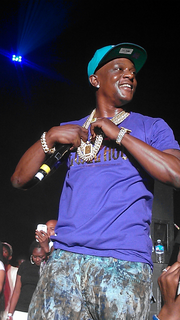A Quote by James Carville
Back when I went to Louisiana State University a million years ago, we got the Baton Rouge paper. But if you wanted to read 'The New York Times' or 'The Wall Street Journal,' you had to go to the reading room of the student union, and you got the edition several days after it had been published, and you had to read it on a wooden stick.
Quote Topics
After
Back
Back When
Baton
Baton Rouge
Been
Days
Edition
Go
Got
Had
Journal
Louisiana
Million
Million Years
New
New York
New York Times
Paper
Published
Read
Reading
Reading Room
Room
Rouge
Several
State
Stick
Street
Student
Times
Union
University
Wall
Wall Street
Wall Street Journal
Wanted
Wooden
Years
Years Ago
York
Related Quotes
I am a Christian resident of New York City. I simply read things the other Manhattanites read (NY Times, New Yorker magazine, Wall Street Journal, and many of the books they read) plus all my Christian reading. I don't do anything special to understand skeptics. I also talk to a lot of skeptics and read things they point to.
I was first published in the newspaper put out by School of The Art Institute of Chicago, where I was a student. I wince to read that story nowadays, but I published it with an odd photo I'd found in a junk shop, and at least I still like the picture. I had a few things in the school paper, and then I got published in a small literary magazine. I hoped I would one day get published in The New Yorker, but I never allowed myself to actually believe it. Getting published is one of those things that feels just as good as you'd hoped it would.
OK, so here's the deal. First of all, "The Wall Street Journal" was bought for $5 billion. It's now worth $500 million, OK. They don't have to tell me what to do. "The Wall Street Journal" has been wrong so many different times about so many different things. I am all for free trade, but it's got to be fair. When Ford moves their massive plant to Mexico, we get nothing. We lose all of these jobs.
I had been reading about [John] Calvin for years and had been studying the English Renaissance for many more years, and it had never occurred to me to think of them together. I learned that Calvin was the most widely read writer in England in Shakespeare's lifetime. He was translated and published in many editions.
I speak to kids 16, 17 years old, they haven't read a newspaper. They haven't physically handled a newspaper. They don't even look at the headlines on a subway. These kids are on the Internet and the level of news that they're getting is not the quality of 'The New York Times' or 'The Wall Street Journal.' It's way deficient, and they don't care.
Walt had a seat-of-the-pants approach on what he wanted musically. We kind of 'read' the boss and had a very high batting average, but there were occasions when he felt we had just written the wrong piece for the situation he wanted. We invariably listened to what he wanted - he was very descriptive in what he wanted and we could read him. We'd go back to the drawing board and work out what he wanted. He was a great inspiration, but a tough taskmaster.




































